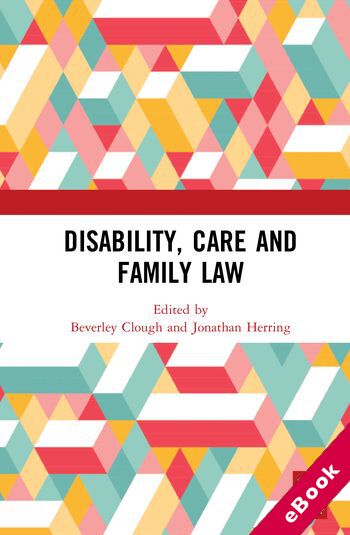We are now closed for the Christmas and New Year period, returning on Monday 5th January 2026. Orders placed during this time will be processed upon our return on 5th January.

The device(s) you use to access the eBook content must be authorized with an Adobe ID before you download the product otherwise it will fail to register correctly.
For further information see https://www.wildy.com/ebook-formats
Once the order is confirmed an automated e-mail will be sent to you to allow you to download the eBook.
All eBooks are supplied firm sale and cannot be returned. If you believe there is a fault with your eBook then contact us on ebooks@wildy.com and we will help in resolving the issue. This does not affect your statutory rights.
This book explores the series of issues that emerge at the intersection of disability, care and family law.
Disability studies is an area of increasing academic interest. As well as a subject in its own right, there has been growing concern to ensure that mainstream subjects diversify and include marginalised voices, including those of disabled people. Family law in modern times is often based on an "able-bodied autonomous norm" but can fit less well with the complexities of living with disability. In response, this book addresses a range of important and highly topical issues: whether care proceedings are used too often in cases where parents have disabilities; how law should respond to children who care for disabled parents; and the care of older family members with disabilities. It also considers the challenges posed by the UN Convention on the Rights of Persons with Disabilities, particularly around the different institutional and state responsibilities captured in the Convention, and around decision-making for both disabled adults and children.
This interdisciplinary collection – with contributors from law, criminology, sociology, and social policy as well as from policy and activist backgrounds – will appeal to academic family lawyers and disability scholars as well as students interested in issues around family law, disability and care.